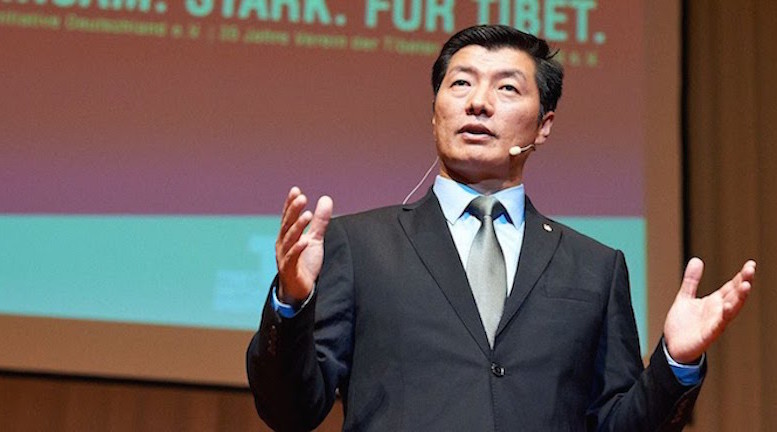Hindustan Times, 23 January 2016
Tibetan Prime Minister-in-exile Lobsang Sangay has condemned the Chinese government’s spiritual cataloguing system, while terming it an attempt to control the reincarnation system of monks in Tibetan Buddhism.
Highlighting China’s track record of destroying 98 percent of monasteries and nunneries in Tibet as well as disrobing monks and putting them behind bars, Sangay said the Chinese government, Communist Party of China in particular, has no business in interfering in the reincarnation system.
The Chinese government recently launched an online database of legal living Buddhas to counter fake living Buddhas that were using donations to support pro-independence activities in Tibet, which Tibetans view as a broader struggle to control the legacy of their spiritual leader the Dalai Lama.
Speaking here on Thursday, Sangay said the Chinese government lacks credibility and legitimacy in spiritual matters.
“So, I am sure they have plans to control the reincarnation system and the reincarnation lamas. But, it will not be credible because neither they have the legitimacy nor credibility in the spiritual matters,” said Sangay.
Tibetan Buddhism holds that the soul of a senior lama, or monk, is reincarnated in the body of a child who would then grow up to become a so-called living Buddha.
The first list of 870 government-certified reincarnations in mainland China was unveiled by the Buddhist Association of China.
Beijing says the move will prevent fake living Buddhas from cheating believers and swindle money from them.
As of 2007, there were more than 100 living Buddhas in Tibet, according to the official China Daily.
However, Tibetans living in Dharamsala decried the move calling it interference by China in the intricacies of Tibetan culture and religion.
Members of Students for a Free Tibet (SFT) staged a protest at a market place in Dharamsala town on Thursday.
SFT Director, Dorjee Tsetan, said they do not accept the list as it does not feature the name of Tibetan spiritual leader the Dalai Lama.
“We cannot imagine having a list of Tibetan Buddhist lama without His Holiness’ name in that and there are many-many important Tibetan lamas-in-exile and they won’t be in that list. So, on very first place we object such list. Chinese government has no authority to take such step,” said Tsetan.
A petition opposing the list was also signed during the protest which was mainly satirical.
Protesters wore Chinese army uniform, while one of them also covered his face with the mask of Chinese President Xi Jinping.
The Dalai Lama fled to India in 1959 after an abortive uprising against Chinese rule. He has said the title of Dalai Lama could end when he dies.
The search for a living Buddha such as the Dalai Lama is complex, involving divination, interpreting dreams, oracles and prayer, according to Tibetan Buddhist tradition.
China routinely rejects criticism of its policies in Tibet, saying its rule, since communist Chinese troops, ended serfdom and brought development to a backward, poverty-stricken region.
The Dalai Lama has denied Chinese charges that he wants Tibetan independence or that he promotes violence, saying he only wants genuine autonomy for his homeland.

